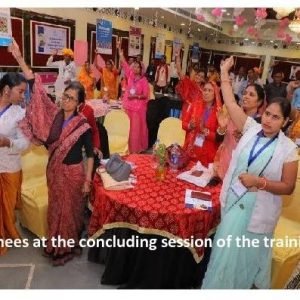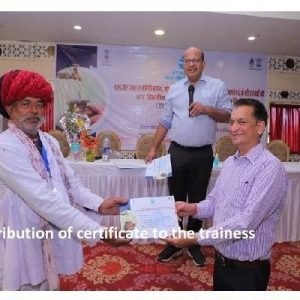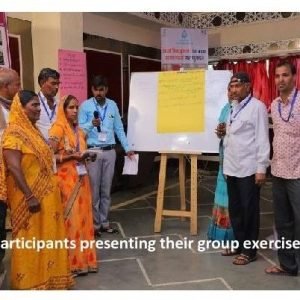Self Help Groups
Self Help Groups
Self Help Groups (SHGs) are at the core of CDECS’s strategy for grassroots empowerment, particularly among women and marginalized communities. Through years of on-ground experience, CDECS has facilitated the formation, strengthening, and sustainability of SHGs as instruments of economic self-reliance, social mobilization, and institutional development.
A. Formation and Institutional Development
CDECS has supported the creation of over 200 SHGs across Rajasthan, Jharkhand, and other operational areas, focusing on tribal, SC/ST, and economically vulnerable populations.
Key Activities:
Community mobilization and trust-building through PRA/PLA tools
SHG formation as per NABARD norms (10–15 members, women-led groups)
Training on group norms, member roles, meeting protocols, and conflict resolution
Facilitation of SHG federation into Cluster and Block-level platforms for greater bargaining power
The SHG model nurtures local leadership, participatory decision-making, and mutual accountability.
B. Capacity Building and Skill Enhancement
To strengthen SHG functioning and sustainability, CDECS regularly organizes capacity-building programs covering financial, social, and institutional aspects.
Modules Include:
Bookkeeping, financial literacy, and savings-credit discipline
Enterprise development and micro-business management
Digital literacy and mobile-based financial tools (UPI, m-banking)
Rights awareness, social entitlements, and schemes like NRLM, PMEGP, MUDRA
Special emphasis is placed on building confidence, leadership, and negotiation skills among SHG women.
C. Financial Linkages and Livelihood Promotion
CDECS enables SHGs to transition into income-generating collectives by ensuring financial access and livelihood planning.
Key Initiatives:
Facilitated bank linkages for savings and credit access (including revolving funds and CIF)
Supported SHGs in credit planning and repayment discipline
Promoted sustainable micro-enterprises in agriculture, animal husbandry, food processing, tailoring, handicrafts, etc.
Organized exposure visits and market linkage support to enhance business viability
This has led to increased household incomes, diversification of livelihoods, and greater economic autonomy for women.
D. SHGs as Change Agents in Community Development
Beyond financial empowerment, SHGs have become platforms for social transformation and community governance.
Impact Areas:
Advocacy on health, sanitation, nutrition, and education at village level
Participation in Gram Sabha, VWSCs, Matri Samitis, and SMCs
Implementation of schemes like Swachh Bharat Abhiyan, ICDS, PMAY, Ujjwala Yojana through community mobilization
Active role in COVID-19 response (mask-making, awareness, ration distribution, etc.)
CDECS views SHGs as catalysts for inclusive and participatory rural development—with women leading the change from the frontlines.






